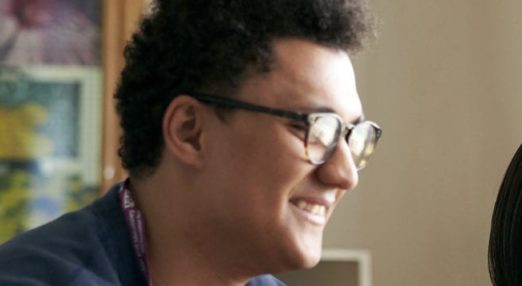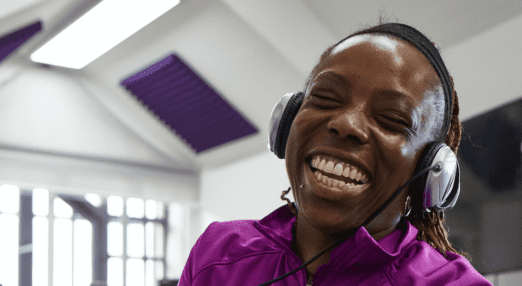In 2020 Maudsley Charity awarded the Digi Inclusion project additional funding as part of our Community and Connection grants programme, match funding was also provided by South London and Maudsley NHS Foundation Trust. The funding will enable the service to continue for a further 18 months.
Talking about the project Shaun Williams Vocational Information Project Manager reflects: “The last 18 months have worked well, we have been trialling, learning and refining as we go. The feedback we have is positive, and we can see the results first hand. A great example of this was helping to provide someone with basic IT skills who was able to move on and pass a finance exam.”
Digital Engagement Officer, Oliver Jones explains – “Our Initial funding was focussed at online training, but we’ve been able to expand this, people can be quite specific about the technical one on one support they need. COVID has made it harder for us to work with new people,” continues Oli “solving technical problems and introducing new concepts remotely is difficult, face to face contact can help us establish trust and we are adapting the service to support this.”
Shaun continues: “A major part of project is being person centred and it is a challenge with COVID, but I think we can mix and match our service delivery.”
Accessing Digi Inclusion
Shaun says: “Some people find us through other services at Beale House, where we are based. We work with clinical care coordinators based in Lambeth and we advertise through the Trust’s OT network, but we’re mindful of capacity – and the need to manage expectations. The key criteria is that we are a service for people based in Lambeth accessing secondary mental health services.”
The approach
The service offers a bespoke approach and recognises that people are looking to get different types of support. Oli says: “If people approach me I will be happy to meet up with them, quite a lot of people just want help with a particular technical issue and it’s a one off, but others are motivated and want to attend our weekly workshops. We try to encourage the people we meet to get involved more. We explain the workshops aren’t scary and we don’t want to put people under pressure. Once they have used the service they go often on to use more structured learning and qualifications.
What are the main IT issues people have?
Oli: “Access is an issue; people often need help with mobile data and getting online. Internet safety is another challenge, many people are quite worried about hackers, scams and the risk of viruses. Many people have smartphones now, but are not really aware of what they are capable of, we’ve developed guides and documents and adapted existing material to made it more accessible.
The future
The team are looking forward to seeing the service continue for a further two years. “We’re looking at linking up with the SLaM Recovery College and Blackfriars Settlement to look at different ways we can share learning and experiences, it’s an exciting opportunity. We are also working with SLaM IT colleagues to see how digi-inclusion can be promoted throughout the trust and also how best we can make this money work for the people that need it most.” Shaun says.


